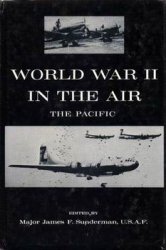General Philippe Retain was the commander of the French army in the
Battle of Verdun in 1916. In the spring of 1917, after his country's forces
had been crippled by mutinies. Retain became the army's commander-inchief.
His skill in holding out at Verdun was matched by his ability to restore
stability, then to build the fighting spirit in France's battered military units
on the western front. In 1918, however, his reaction to the German spring
offensive bordered on panic. The Allies established a unified command in
April largely to place Retain under effective control. Nonetheless, he ended
the war with a glowing reputation. This paved the way for him to become
a political figure, notably during World War II.
Retain was bom on April 24, 1856, in northern France in a village near
Arras. He was the son of a peasant family. Thus, even in a French officer
corps open to men from all social levels, his background was a modest one.
He was commissioned in 1878, then rose slowly. He became an expert on
infantry tactics, but his views were unpopular ones. In particular, he opposed
the emphasis on the offensive that dominated French military thinking at
the time. Some of his ideas penetrated the infantry regulations before 1914,
but he was a mere colonel, and close to retirement, when war broke out.
Retain rose quickly, leading first a brigade, then a division with great skill
during the campaign that ended with the Battle of the Mame. In 1915 he
commanded a corps in the spring offensive in Artois, then a field army in
the September assault in Champagne. Even in the bloody failure in Artois,
Petain distinguished himself by his adept use of artillery to open the gate
for his infantry. He soon had a rare reputation among the army's rank and
file for being stingy with the lives of his men.
Verdun elevated Petain to the upper level of the French army. Brought in
by General Joseph Joffre during the first week of fighting, he led the
tenacious defense. Much of the battle took the form of massive artillery
duels, and Petain alleviated the resulting strain on his forces by rotating
entire divisions into the battle line for short stays, then removing them for
a period of recovery. This sterling performance failed, however, to raise
Petain to the level of commander-in-chief of the army. Instead, that post
went to his offensive-minded subordinate. General Robert Nivelle.
Nivelle's offensive in Champagne failed catastrophically in spring 1917,
and Petain's moment arrived. Much of the army had sunk into mutiny by
the time Petain took over in May. The new commander-in-chief restored the
situation by improving food and leaves, and by making personal, inspirational
visits to ninety divisions. Representatives from units as small as
infantry companies had a chance to tell Petain personally of their grievances.
He also used rougher measures: leading mutineers were executed or imprisoned,
although the number that received such treatment remains uncertain.
Petain's most potent tool was a pledge that the army would end costly
and ill-prepared offensives. "I am waiting for the Americans and the tanks,"
he stated. As the army returned to health, Petain gave it new confidence by
carrying out successful, well-planned offensives. Typical was the French
attack at Verdun in late August. Conducted on a narrow front, it combined
an effective artillery bombardment, overwhelming strength for the attacking
infantry and a limited set of objectives. As the year went on, Petain
increasingly relied on artillery, tanks, and aircraft to bear the weight of his
attacks. At the start of 1918, he urged the French government to accept a
defensive strategy for the entire coming year.
Petain did not bear up well when the crisis of 1918 struck. With Ludendorff's
March offensive threatening t© rupture the Allied line, he lost his
composure. The French commander prepared to pull much of the French army
back to defend Paris, thereby exposing the flank of the British forces under
Haig. The appointment of General Ferdinand Foch as Allied commander-inchief
took place in large measure to limit Petain's freedom of action.
Petain's excessive caution was on display again in mid-July. Foch prepared
to launch his first counterattack against Ludendorff's extended lines.
With French and American troops under General Charles Mangin poised to
hit the western flank of the bulge in the German line between the Mame
and the Aisne, Petain called for the attack to be canceled. He feared that the
Germans would continue to move southward. Foch overruled Petain, and
the attack achieved a striking success.
For the remainder of the war, Petain pushed his armies steadily forward
without further friction with his superiors. He received his reward for his
entire wartime service in December 1918, when he was promoted to the
rank of field marshal. He remained on active duty until 193 1
.
Petain was the only military commander from World War I to play a
significant role in World War II. Tragically, it besmirched his reputation.
Following the fall of France in 1940, the old general, now eighty-four,
became the head of the Vichy government. Tainted as a collaborator with
the Nazis, he found himself tried by his countrymen after the war. He ended
his life imprisoned on the Isle d' Yeu off the coast of western France on July
23, 1951.




 World History
World History









